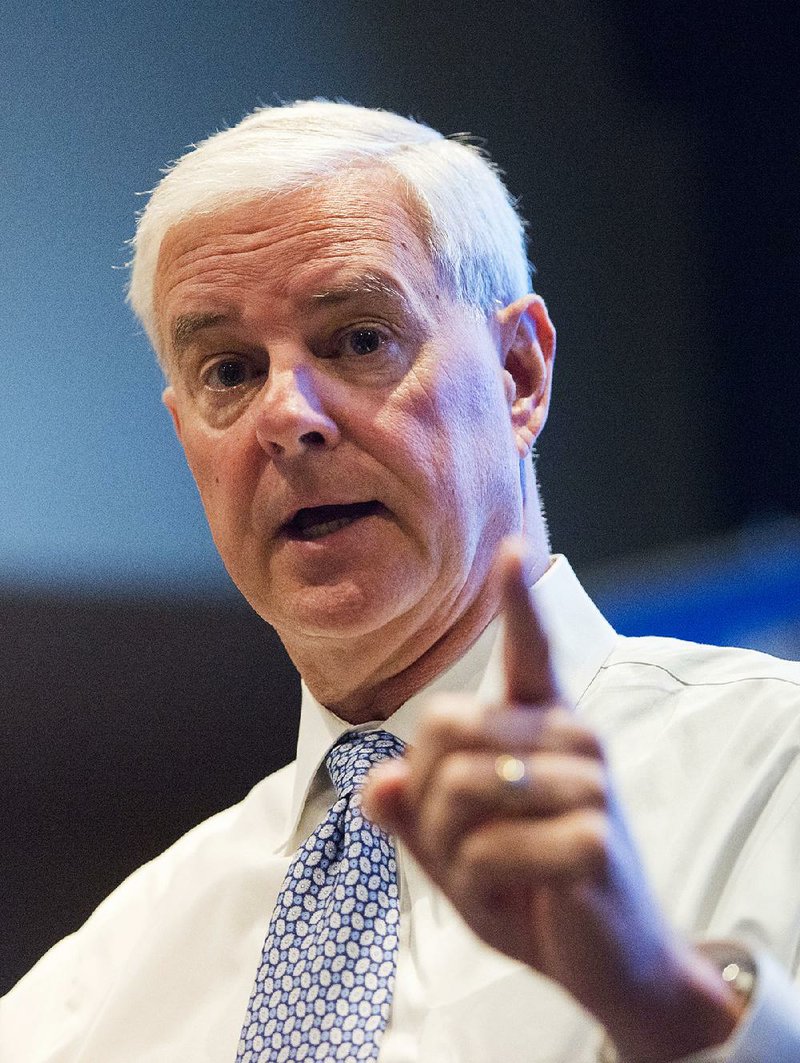WASHINGTON -- Former White House Budget Director Alice Rivlin on Wednesday denounced Congress' "derelictions of fiscal responsibility," telling lawmakers her conscience compelled her to do so.
During testimony before the House Budget Committee, Rivlin said she was "delighted" by its oversight hearings focusing on the Congressional Budget Office.
But she said she wanted "to focus your attention on two far more important budget challenges. The dangers of a federal debt that's projected to rise faster than the economy can grow and the total breakdown of the budget process."
"The burden of the debt will weigh heavily on future taxpayers and it's on track to rise faster than even the optimists think our economy can grow. These derelictions of fiscal responsibility are not the subject of today's hearing, but they are the dangerous elephant in this budget committee room," she said. "I couldn't sit here in good conscience without drawing attention to them."
The committee's chairman, U.S. Rep. Steve Womack, R-Ark., was recently chosen to lead the Joint Select Committee on Budget and Appropriations Process Reform, which will look for ways to improve the system.
Rivlin, 87, served as founding director of the Congressional Budget Office, overseeing its team of nonpartisan numbers crunchers from 1975 until 1983.
She was director of the Office of Management and Budget from 1994-96, then switched to the Federal Reserve System, where she served as vice chairman from 1996-99.
In 2010, Rivlin and former U.S. Sen. Pete Domenici, R-N.M., were chairmen of the Bipartisan Policy Center's Debt Reduction Task Force, which called for sweeping spending cuts aimed at reining in government spending.
At the time, the national debt was less than $14 trillion. Today, it's more than $20 trillion.
President Donald Trump's budget, unveiled last month, would raise the nation's debt by $7 trillion over the next decade.
Critics say the debts will probably be even higher, in part because Trump's budget blueprint assumes 10 straight years of steady economic growth.
Previous Congressional Budget Office deficit projections have drawn fire from the Trump administration.
Last year, after the administration said that year's budget blueprint would result in a small surplus by the year 2027, the budget office contradicted the White House, estimating the plan would result in a $720 billion budget deficit.
At that time, some Republicans in Congress accused the agnecy of having a partisan bias.
Attempts were made to slash the budget office's funding.
Trump's White House budget director, Mick Mulvaney, was also dismissive.
In an interview with the Washington Examiner, Mulvaney said: "At some point, you've got to ask yourself, has the day of the CBO come and gone?"
Since becoming chairman in January, Womack has held a series of five hearings focusing on the Congressional Budget Office, enabling the agency to answer its critics and allowing lawmakers to raise concerns.
Womack emphasized, from the beginning, that the goal was not to attack the budget office.
"Our goal here is to make sure CBO has the tools it needs to effectively support the congressional budget process," he said Wednesday.
During her testimony Wednesday, Rivlin defended the Congressional Budget Office's work and praised the "string of talented directors" who followed her.
The office has succeeded, she said, because congressional leaders "recognize their need for solid, unbiased budget estimates and have protected CBO from partisan and special-interest threats that could undermine its ability to do its job."
The Congressional Budget Office also drew support from two others who testified.
Sandy Davis, senior adviser for the Bipartisan Policy Center and a former budget office senior staff member, said Congress needs "a vibrant, robust and independent CBO."
Maya MacGuineas, president of the Committee for a Responsible Federal Budget, expressed concerns about the nation's "fiscally deteriorating situation," adding, "I don't think the role that CBO plays is where we should be focusing."
While the administration has estimated deficit spending of $7 trillion over the next decade, MacGuineas warned that the actual figure may be far higher.
"We're on track to add as much as $14 trillion to the debt over the next 10 years," she said, adding, "These numbers have stopped having meaning because they're so huge."
Womack voted for tax cuts in December and a budget agreement in February -- measures that the Congressional Budget Office says will add to the national debt.
Wednesday, the former Rogers mayor said congressional spending is "moving on a trajectory that is terribly unsustainable" and called for passage of a constitutional amendment requiring a balanced budget.
A Section on 03/15/2018
